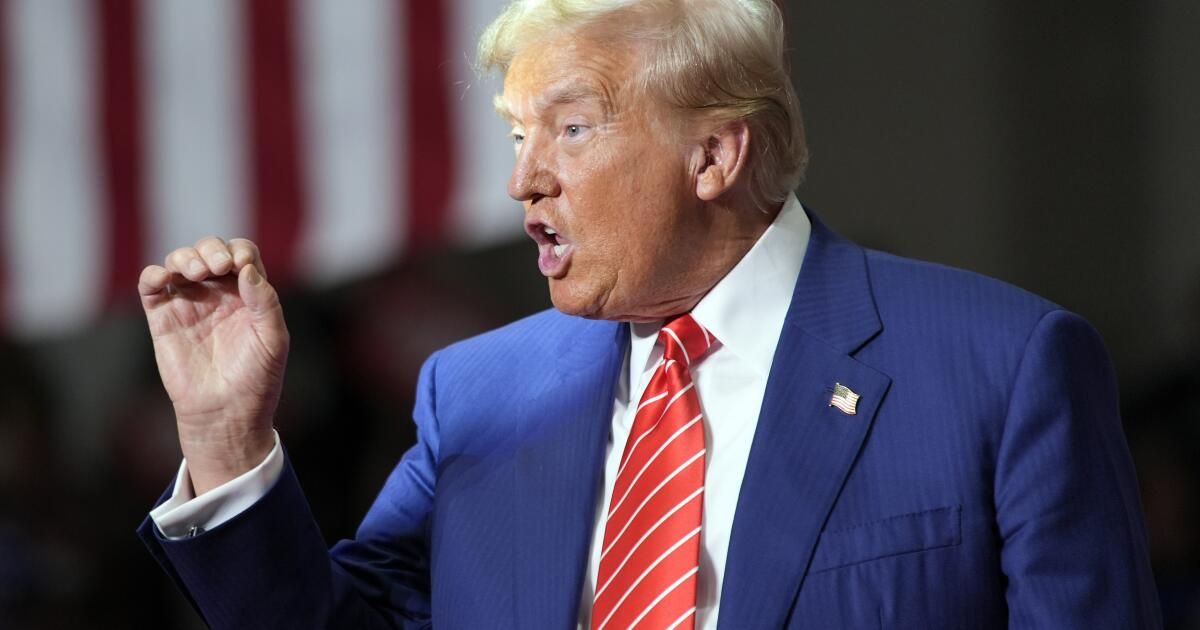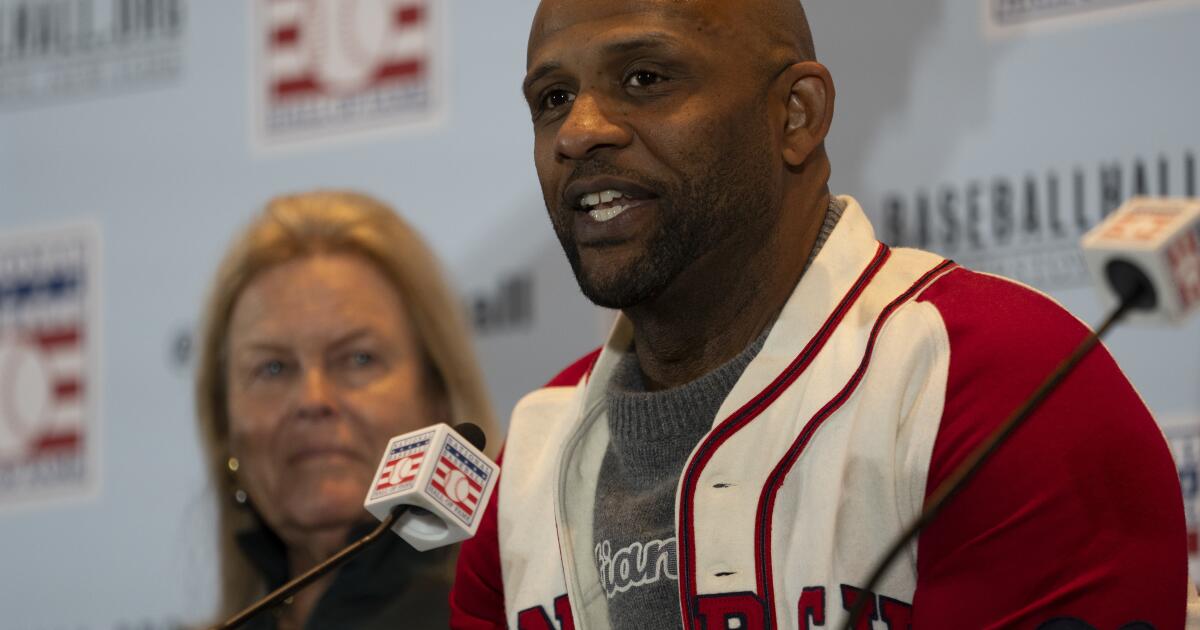In the six weeks since Kamala Harris succeeded President Biden as the Democratic presidential nominee, Donald Trump has relentlessly accused her of being a radical whose views are at odds with those of voters.
“He is a Marxist, he is a fascist,” the former president declared last week, strangely combining labels that normally contradict each other.
Trump claimed, without a shred of evidence, that Vice President Harris, whom he has nicknamed “Comrade Kamala,” “wants this country to go communist.”
Trump has openly explained his strategy to reporters: “All we have to do is define our opponent as a communist or a socialist.”
But his wild swings aren't working.
A series of public opinion polls show Harris has steadily risen in the standings among voters and maintains a narrow lead in the national popular vote. A Wall Street Journal poll released last week found that 49% of voters have a positive view of the vice president, up from 14% since July.
The same poll found that 59% of voters think Trump is “too extreme” to be president, but only 46% think Harris is too extreme (that figure, 46%, roughly matches the share of the electorate already committed to Trump).
So why is Trump's liberal rhetoric failing?
For one thing, Harris is not—and never has been—a Marxist, and most voters seem to recognize that.
In her failed 2019 presidential campaign, she ran as a progressive but was still closer to the center than candidates like Vermont independent Sen. Bernie Sanders, who (unlike Harris) describes himself as a democratic socialist.
To be doubly sure, I consulted a leading historian of American Marxism, Paul Buhle, a retired professor at Brown University. He told me that he had researched Harris’s history and found no evidence of Marxist leanings. “It is a slander,” he wrote in an email.
Harris, on the other hand, has moved quickly and effectively to define her positions as clearly within the mainstream of current Democratic thinking: liberal, but far from anything resembling Marxism, which calls for government ownership of big industry.
At the Democratic convention in Chicago and in her interview with CNN last week, Harris made clear that she has abandoned several of the progressive policies she briefly embraced in the heat of her 2019 campaign.
His promise in his convention speech that he would work with “small business owners and entrepreneurs and American companies to create jobs” was pro-capitalist enough to elicit mild howls from some progressive critics.
Trump has made some campaign proposals that could be considered progressive, including a federal ban on “price gouging” by supermarkets; Trump denounced the idea as “Soviet-style price controls,” but it proved broadly popular: An Economist-YouGov poll last month found that 60% of voters like the idea, including about half of Republicans.
Campaign strategists from both parties say Trump’s attacks on Harris have another flaw: They are scattered and unfocused. In addition to calling her a communist and a fascist, Trump has argued that Harris is more liberal than Biden and would continue the president’s policies.
“He hasn't decided what his argument is going to be,” said Doug Sosnik, a Democratic strategist who helped President Clinton win re-election in 1996. “I think he's tried about eight different arguments.”
Several Republican strategists say they believe Trump is aiming at the wrong target: generating enthusiasm among voters who already support him, but offering little to undecided voters.
“Name-calling is great for mobilizing the base, but it’s not going to work with centrist voters,” said one Republican strategist who asked not to be named as he criticized his party’s candidate. “People already know her record. They want to know how candidates will grow the economy… Every time she calls him names, she’s not talking about the economy.”
“Harris is succeeding in her role as a change agent,” said Alex Conant, a former adviser to Florida Republican Sen. Marco Rubio. “In 2016, one of the reasons Trump won was that he cast himself as the candidate of change. He said he would ‘drain the swamp,’ and that appealed to independent voters. But I can’t remember the last time I heard him use that phrase.”
Strategists say Harris still has vulnerabilities that Trump could exploit more consistently than he has.
They said a more effective campaign would tie it more closely to Biden’s economic record, since most voters hold the president responsible for high prices and believe Trump could do a better job.
“Trump needs to turn the election into a referendum on Biden and Harris’ record,” Conant said.
And they said some voters have doubts about Harris' ability to lead in a crisis, a measure on which Trump leads her in the polls.
Trump’s TV ads, designed by the professionals who run his campaign, already focus on such themes. Instead of burning accusations like “Marxist,” they use a more traditional (and more accurate) label: “San Francisco liberal.”
But in his public appearances, Trump has been unable to maintain that more disciplined message.
As Harris continues to improve her standing among undecided voters who will be able to choose the next president, Trump's campaign speeches are exercises in self-congratulation.
Insults and savage blows do not help him win more votes, but Trump wants to be Trump, free from the discipline his aides have tried in vain to impose. He just keeps attacking.












